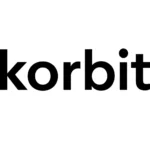LG Electronics has entered the semiconductor equipment race, developing hybrid bonding machines essential for next-generation high-bandwidth memory used in artificial intelligence systems. The consumer electronics giant’s Production Engineering Research Institute began working on the specialized equipment, targeting mass production by 2028.
The move represents a calculated expansion into a high-value niche dominated by global suppliers like Dutch firm BE Semiconductor Industries and Applied Materials of the US. Currently, neither company has operations in Korea, while local competitors including Samsung’s Semes unit, Hanwha Semitek, and Hanmi Semiconductor remain in development phases.
Hybrid bonding eliminates traditional solder bumps between memory chips, enabling thinner stacks with improved heat dissipation—critical for multi-layered HBM used in AI processors. Samsung plans to adopt the technology for HBM4 production beginning in 2026, while SK hynix is weighing hybrid bonding against advanced molded underfill techniques.
The timing aligns with LG Group Chairman Koo Kwang-mo’s emphasis on AI-related businesses and the company’s broader shift toward business-to-business operations. LG’s B2B divisions, including automotive electronics and HVAC systems, are expected to generate over 20 trillion won ($15.3 billion) in revenue this year.
LG shares rose 2.5% on the Seoul exchange following reports of the equipment development plans. Success could position the company to supply major HBM manufacturers including SK hynix, Samsung, and Micron Technology when they ramp production of next-generation memory products.
However, the technical barriers remain formidable. Industry experts note that hybrid bonding requires mastering demanding surface polishing and copper bonding processes where established vendors already excel. The global hybrid bonding market could reach $700-750 million by 2031, with annual growth rates of 15-25%.




